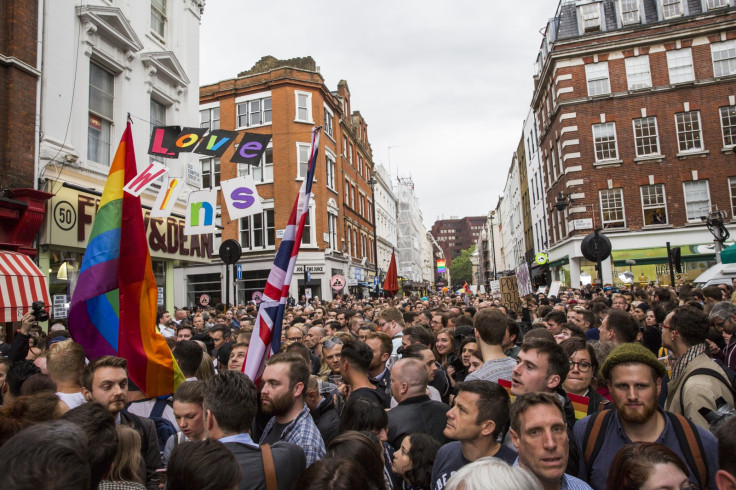Orlando shooting: LGBT people are not free to be themselves without fear
In the early hours of Sunday morning (12 June 2016), a homophobic attack saw 49 members of our community shot dead and a further 53 left in critical condition in a space that they called 'safe'.
This is the worst mass-shooting that the United States has ever seen, and indeed one of the worst mass-attacks on lesbian, gay, bi and trans people in recent history.
And all because of someone's identity, and the fact that one hateful individual decided that he could not let a group of people live freely as who they are and who they love.
This kind of vicious hatred is an extreme example of the fear, discrimination and marginalisation that LGBT people face on a daily basis around the world.
It's still illegal to be gay in 73 countries, and in 10 it is punishable by death.
But it's not just in countries where anti-gay legislation is in place. While we may have made major progress in ensuring lesbian, gay, bi and trans people are more equal in law in some parts of the world, including the UK, LGBT people are not free to be themselves without fear of abuse, discrimination or worse everywhere where we work, live and socialise.
Here in the UK, which in May of this year was named the third most LGBT-inclusive country in the world (after Malta and Belgium), lesbian, gay, bi and trans people face hate and discrimination on a daily basis.

This takes place in the form of school bullying, that sees 75,000 young people bullied each year for being gay, to the one in six lesbian, gay and bi victims of reported hate crime within the last three years. And this also applies to the trans community, who face numerous legal barriers to being able to live freely as themselves, as well as disproportionately high levels of hate crime and abuse.
What's important is to understand the intrinsic link between these instances of hate crime and events like the Pulse nightclub shooting in Orlando. These are all fuelled by hatred toward lesbian, gay, bi and trans people, and are part of a continuum of homophobia, biphobia and transphobia that we still have a lot of work to do to eradicate.
During this dark time, where LGBT people around the world will be feeling more anxious, afraid and vulnerable than ever, it's absolutely vital that we all continue to stand by the side of the lesbian, gay, bi and trans community, whether we are LGBT ourselves or are an ally; and our allies are absolutely vital to this movement.
All of us must play a part in eradicating hate and, without putting ourselves in danger, we can start by addressing the everyday instances of discrimination that take place around us.
This might take the form of correcting a friend who disparagingly describes something as 'gay', calling out a colleague who makes a joke about trans people or checking in with your children or any younger relatives to ensure that they stand by lesbian, gay, bi and trans people too, whether at their school or in wider society.
Until all lesbian, gay, bi and trans people, in Britain and overseas, are accepted without exception, our work at Stonewall will continue. We will remain by your side, and we hope that you will remain by ours, too.
Paul Twocock is director of Campaigns, Policy and Research at Stonewall.
© Copyright IBTimes 2024. All rights reserved.






